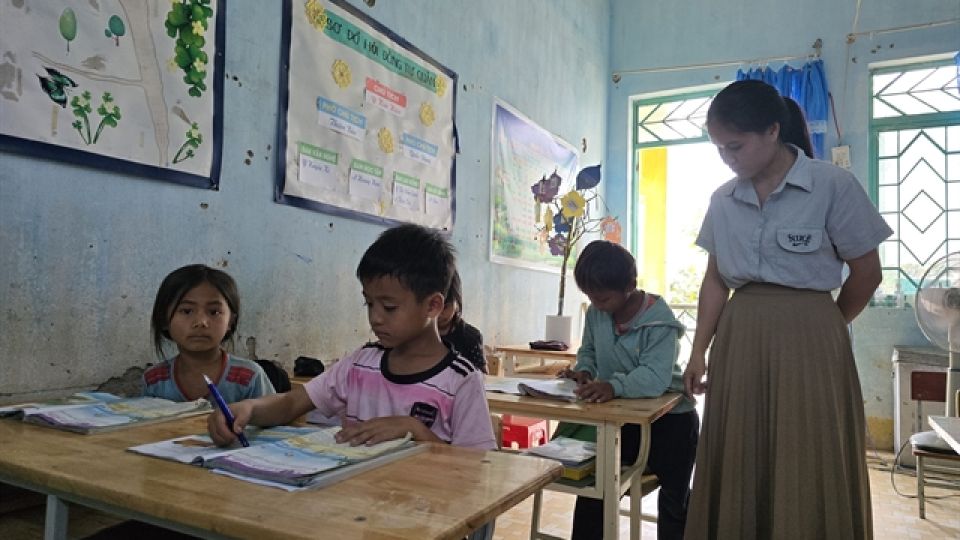September 26, 2025
HANOI – Việt Nam is pressing ahead with reforms that expand rights for people of Vietnamese origin and for foreign experts seeking citizenship, as well as strengthen the social safety net for vulnerable groups.
These twin priorities – nationality reform and poverty reduction – were presented as core elements of the country’s human rights agenda at a policy seminar on Thursday.
The event brought together senior officials and policy experts to discuss how recent legislative updates and national programmes are reshaping the way citizens and communities experience their rights in practice.
Nationality reform
Võ Thị Hạnh from the Ministry of Justice’s Judicial Administration Department explained that the amended Law on Vietnamese Nationality (Law 79/2025/QH15), effective from July 1, broadens eligibility for Vietnamese nationality by relaxing requirements for those with close family ties, including spouses, children, parents and now grandparents who are Vietnamese citizens.
Minors applying with a parent and foreign scientists, investors and experts with special contributions may also be admitted without the usual conditions of five years’ residence, Vietnamese language ability or proof of livelihood in Việt Nam.
Crucially, the reform also introduces a new, more flexible approach: applicants may retain a foreign nationality if permitted under the other country’s law, provided they pledge not to misuse that status and receive approval from the President.
This departs from earlier, stricter rules that required renunciation. Or, if a person wished to retain a foreign nationality, they had to prove that giving it up would negatively affect their rights and interests abroad.
Other changes reflect practical realities. Applicants may now choose a combined Vietnamese–foreign name in official documents. Children of mixed-nationality parents are protected: if born in Việt Nam and parents cannot agree at registration, the child automatically receives Vietnamese nationality.
Returnees are no longer restricted to narrow categories. Anyone who lost Vietnamese nationality may apply to restore it, and may also combine names if keeping another nationality.
The reform also streamlines procedures. Applicants no longer need to supply a Vietnamese criminal record certificate, and Vietnamese diplomatic missions abroad can now receive files directly, cutting red tape for overseas applicants.
The Ministry of Public Security is tasked with verifying personal backgrounds. Digital platforms will also gradually be introduced to handle cases.
Hạnh said these updates not only align with Party and State policies toward overseas Vietnamese, but also reflect Việt Nam’s strategy to attract skilled workers, encourage investment and promote innovation in the digital era.
“The aim is to strengthen national unity, advance reconciliation and make it easier for those with ties to Việt Nam to contribute to the country’s development,” she said.
Poverty reduction
Phạm Hồng Đào, deputy chief of the National Office for Poverty Reduction, highlighted Việt Nam’s impressive poverty-reduction record driven by the National Target Programme for Poverty Reduction 2021-2025,, framing it as a human rights obligation enshrined in the Constitution.
The national poverty rate fell from 5.2 per cent in 2021 to 1.9 per cent in 2024, and is expected to drop below 1.1 per cent by the end of 2025. Poverty among ethnic minorities stands at 12.5 per cent, with annual declines of more than four points.
The shift to a multidimensional poverty approach – measuring not just income but access to education, health care, housing, clean water, sanitation, employment and information – places Việt Nam among the first countries in Asia to apply global standards.
Infrastructure investment has been central. More than 2,600 new projects – including roads, irrigation works, schools and clinics – have been built in poor areas, along with the maintenance of another 2,340 facilities.
At the household level, 10,587 livelihood projects have helped more than 205,000 families earn a living, supporting sustainable farming, small business and vocational training.
Social protection has been expanded, with concessional credit of up to VNĐ100 million (US$3,786), free health insurance with added support for inpatients, school fee waivers, monthly electricity subsidies, housing and water loans and free legal aid.
Gender equality is woven through the programme, with targeted nutrition for women and girls, vocational training and jobs for women, gender-sensitive communications and women’s representation in community oversight.
Challenges ahead
Officials acknowledged that progress remains uneven. Remote regions still face high poverty rates, and some households classified as ‘non-poor’ still live below minimum living standards.
Capacity gaps at the grassroots level, limited infrastructure and climate and demographic pressures add to the challenge.
To address this, Việt Nam plans to raise the poverty line for 2026–2030, integrate poverty reduction with the new target programme and emphasise climate-resilient livelihoods, digital transformation and stronger community monitoring.
“Reducing poverty is not just about income – it is about dignity, equality and opportunity,” Đào said. “That is why it is central to our human rights commitments.”
By placing nationality reforms and poverty reduction side by side, the seminar highlighted Việt Nam’s holistic approach to human rights: enabling overseas Vietnamese and experts to secure legal identity and inclusion, while ensuring vulnerable citizens at home enjoy social rights and opportunities.
As Hạnh concluded, the nationality law reforms will “open doors for overseas communities and talent to engage with Việt Nam.” And as Đào said, poverty reduction must continue as “a shared effort of the State, society and individuals for the poor, leaving no one behind.”


